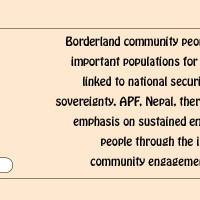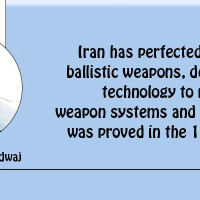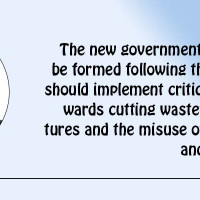- Saturday, 24 January 2026
Check Kidney Smuggling
Bini Dahal
With around 20.3 per cent of the population still living with poverty in Nepal, poverty and unemployment have become common a reality. Such a dire situation has exacerbated incidents where people have been forced to go to extremes. And that could even mean selling one’s own kidneys.
Recently, two individuals were caught by the police after it was discovered that they had trafficked human kidneys to India. It is said that they had lured a 28-year-old man with a weak economic status by promising to offer Rs. 1 million to him if he would give one of his kidneys. The racket involved in kidney smuggling was able to sell the essential human organ in Kolkata. And even on insistence that he had been unwilling to donate his kidney, the criminal group had lured him. The gang had also warned him of severe consequences if he kept on adhering to his stance.
As per the law, kidneys can be donated only by family members. So, the traffickers had even created a fake citizenship certificate and other forged documents to show the relationship with the patient and the donor. The Hokse Lalley, located in Kavrepalanchowk district, is well-known for having villagers with only a single kidney. A study has shown that one-third of villagers has sold their kidney. This reflects the ever-growing kidney trafficking situation in the country. It is said that kidney trading is common in many Asian countries, India, Pakistan, Nepal, Bangladesh and Iran.
And for a country like Nepal, it is very easy for traffickers to build trust and confidence in illiterate and naive people. They are told that even a single kidney can help them keep their body and soul together easily. There have also been instances where people have been given sedatives, making them unconscious and their kidneys are taken out without their consensus. While kidney transplant is considered a common and a successful way to protect people’s lives, legal routes are not often followed. And most importantly, the payment made to the kidney donor is only a portion of the actual amount. It is the kidney traffickers who keep most of the money with themselves.
Organ trafficking is a crime in Nepal. The Human Body Organ Transplantation (Regulation and Prohibition) Act, 1998 and the Human Trafficking and Transportation (Control) Act, 2007 have put a ban on the sale of human organs, including kidneys. The issue is a reflection of the poor governance system and the weak socio-economic situation of the country. It also indicates the poor legal system and the lack of proper monitoring and the inability to control such rising crimes. We are in need of a concrete strategy to put a stop to this.
Such a strategy must go into the roots and tackle those structural problems like poverty and unemployment. There is a need to identify both the traffickers and the victims. For this, the police and border officials should be made well-equipped to tackle this problem. The long porous border between Nepal and India has also become helpful for traffickers to increase their business. So, border regulation is equally important. And the Nepal police and other authorities concerned must coordinate and collaborate with their Indian counterparts to control this crime. Raising awareness is essential to make people understand the potential health risks they may face when becoming a part of organ trafficking.









-original-thumb.jpg)





